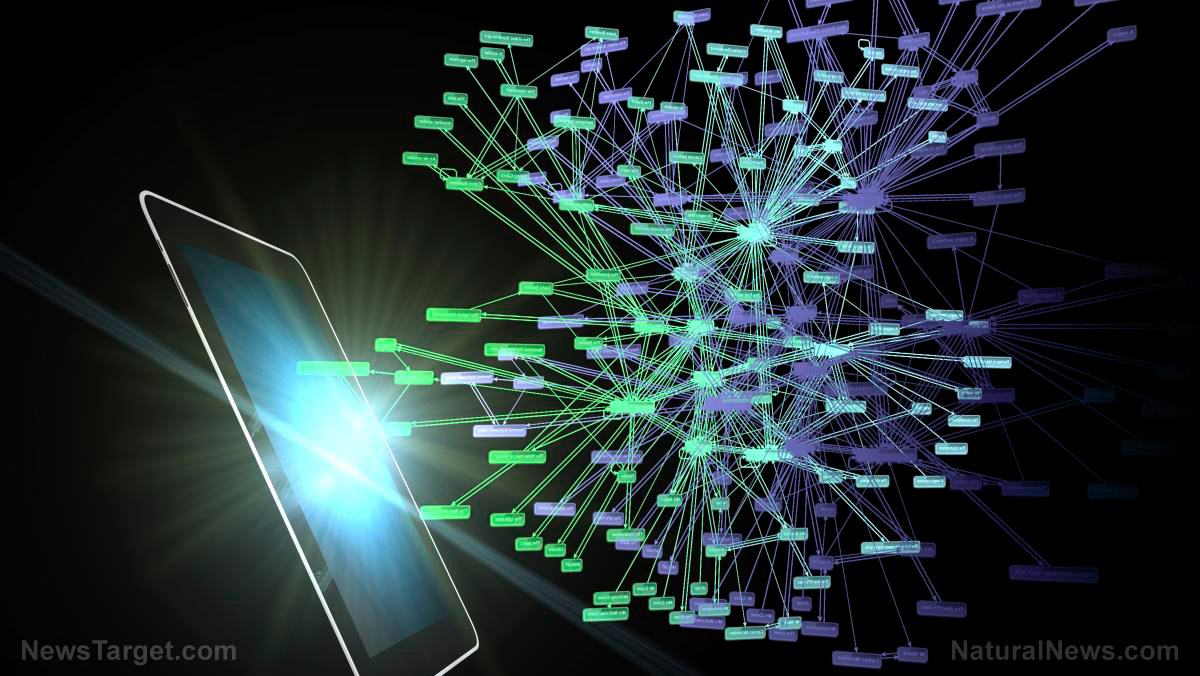Coming soon: Cyborg dragonfly drone spies
07/20/2017 / By Frances Bloomfield

The next step in drone technology has been realized: scientists from the Charles Stark Draper Laboratory in Cambridge in England have found a way to turn living insects into drones. The DragonflEye, a genetically-modified half-machine, half-insect dragonfly, is the result of their collaborative efforts with the Howard Hughes Medical Institute (HHMI). Together, the team of researchers have completed the first test flight of their dragonfly drone at the Janelia Research Campus in Virginia, reported DailyMail.co.uk.
Creating the DragonflEye first involved genetically modifying “steering neurons” into the dragonfly’s spinal cord, which would allow the scientists to control the insect’s flight path through remote control. These “steering neurons” would be activated by light pulses in order to give the scientists more precise and elegant command over the insect’s movements. On the insect’s back, they placed a fingernail-sized, backpack-like device outfitted with a solar panel to collect the energy needed for the insect’s data collection technology.
Though not the first attempt at cyborg insect drones, Jesse J. Wheeler, senior biomedical engineer at the Charles Stark Draper Laboratory and principal investigator on the project, stated that their creation has improved on past efforts.
One such experiment involved planting impulses in the insects to encourage movement, and the other required directly triggering the insects’ wing neurons and muscles. Wheeler added that the shortcomings of each experiment became clear when, as in the case of the first one, the insects acclimated to the impulses and learned to ignore them completely. The problem with the second experiment lay in the insects’ previously elegant, natural movements being replaced by graceless lurching. This is probably because their earlier attempts utilized large, flying insects like beetles and locusts, researchers said.
“Our approach is different because we are using dragonflies, which are smaller and more agile fliers,” Wheeler explained to Spectrum.IEEE.org. He further stated that they chose dragonflies specifically because “they are found worldwide and are very robust and agile fliers for their small size.” Through their methods, he added, the insects wouldn’t get used to the urges, nor would they have to learn how to move their wings.
On the possible applications of their creation, Wheeler stated that DragonflEye would have multiple uses, including but not limited to surveillance missions, guided pollination, monitoring environmental changes, and gaining a better understanding of the behaviors of wild animals. (Related: Mosquito-sized spy drones being developed by researchers)
The project is still underway, with Wheeler himself saying that they plan on creating more DragonflEye drones in the near future.
While some people may see the DragonflEye as a massive technological breakthrough, others may view it as a dangerous tool to be used and abused by higher powers, and rightfully so.
In January of last year, documents released by former National Security Agency (NSA) contractor and whistleblower Edward Snowden detailed an operation called “Anarchist”, a joint surveillance program between the NSA and the British intelligence agency Government Communications Headquarters (GCHQ). Using open-source software and military-grade interception systems, the two intelligence agencies were able to hack into, decrypt, and obtain live video feeds from Israeli military drones and fighter jets. Doing so allowed them to witness Israeli forces keeping a careful eye on Syria and bombing Gaza, all with little effort.
If NSA and GCHQ were able to hack into military drones, what’s stopping them from doing the same to the DragonflEye, which is anything but a sophisticated aerial vehicle. Wheeler himself said that the DragonflEye would do well as a surveillance tool, especially since a tiny dragonfly is almost invisible to the average person. You may not even realize that you’re being monitored until it’s too late, if at all.
The future may be coming our way soon, but we’re not the only ones looking forward to it. Intelligence services like the NSA and Central Intelligence Agency (CIA) are as well.
Go to FutureScienceNews.com for even more stories like this one.
Sources include:
Tagged Under: dragonfly drones, drones, future tech, police state, surveillance, technology
RECENT NEWS & ARTICLES
COPYRIGHT © 2017 GLITCH.NEWS
All content posted on this site is protected under Free Speech. Glitch.news is not responsible for content written by contributing authors. The information on this site is provided for educational and entertainment purposes only. It is not intended as a substitute for professional advice of any kind. Glitch.news assumes no responsibility for the use or misuse of this material. All trademarks, registered trademarks and service marks mentioned on this site are the property of their respective owners.




















